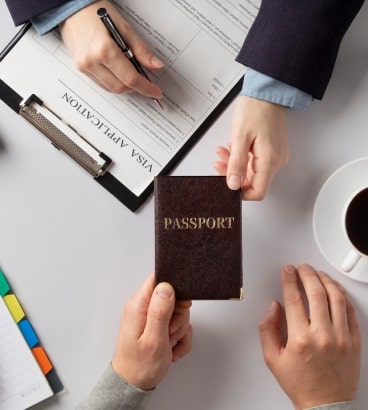Navigating the UK Visa Appeal Process: A Comprehensive Guide
3 min read
In the intricate web of immigration laws and regulations, obtaining a visa can sometimes be a challenging endeavor. For individuals facing a UK visa refusal, the journey doesn’t end there. The avenue of appeal offers hope and recourse for those who believe their application was unfairly denied. In this comprehensive guide, we delve into the UK visa appeal process, shedding light on its intricacies and offering valuable insights to navigate this often daunting terrain.
Understanding the Basics
Before delving into the appeal process, it’s crucial to grasp the fundamentals. A UK visa refusal can stem from various reasons, including insufficient supporting documents, discrepancies in information provided, or failure to meet eligibility criteria. Upon receiving a refusal notice, individuals typically have the option to appeal the decision if they believe it was unjust.
Types of Visa Appeals
In the UK, visa appeals fall into two primary categories: Administrative Review and Immigration Tribunals.
Administrative Review: This process allows applicants to request a review of their refusal by the Entry Clearance Manager (ECM) within 28 days of receiving the decision. The ECM re-evaluates the application based on the documents provided initially, without the submission of new evidence. It’s essential to note that this avenue is limited to certain visa types and refusal reasons.
Immigration Tribunals: If an administrative review is not applicable or unsuccessful, the next recourse is to appeal to the First-tier Tribunal (Immigration and Asylum Chamber). This involves lodging an appeal within a specified timeframe, typically 14 or 28 days, depending on the type of visa and whether the applicant is inside or outside the UK. The tribunal will conduct a full reconsideration of the case, allowing for the submission of additional evidence and witness testimonies.
Preparing for the Appeal
A successful appeal hinges on thorough preparation and presentation of compelling evidence. Here are some crucial steps to bolster your case:
Seek Legal Advice: Given the complexity of immigration laws, consulting with a qualified immigration solicitor or advisor can provide invaluable guidance. They can assess your case, identify strengths and weaknesses, and devise a robust appeal strategy.
Gather Evidence: Compile all relevant documents to substantiate your claims and address the grounds of refusal. This may include financial records, employment contracts, relationship documentation, and any other pertinent evidence.
Craft a Persuasive Statement: Draft a detailed statement outlining the reasons for the appeal, addressing each point of refusal systematically. Clearly articulate why you believe the decision was erroneous and provide supporting evidence to bolster your arguments.
Attend Hearings: If your appeal proceeds to a tribunal hearing, ensure your attendance unless exceptional circumstances prevent it. This is an opportunity to present your case in person, clarify any points of contention, and respond to questions from the tribunal panel.
The Appeal Hearing
During the tribunal hearing, a judge will preside over proceedings, with support from legal representatives and possibly expert witnesses. The appellant, along with their legal representative if applicable, will have the opportunity to present their case, followed by the respondent (usually a Home Office representative) presenting their arguments. Witnesses may be called upon to provide testimony, and both parties will have the chance to cross-examine each other’s evidence.
Decision and Further Recourse
Following the hearing, the tribunal will issue a decision either orally or in writing. If the appeal is successful, the visa refusal will be overturned, and the applicant may proceed with their immigration plans. However, if the appeal is dismissed, further recourse options such as judicial review or re application may be explored, depending on the circumstances.
Conclusion
Navigating the UK visa appeal process can be a daunting task, but with thorough preparation, diligent representation, and expert guidance, individuals can enhance their prospects of a favorable outcome. By understanding the nuances of the process and adhering to procedural requirements, applicants can assert their rights and seek justice in the face of visa refusal.





